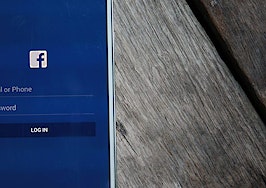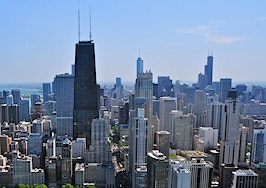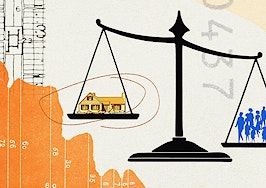- Chicago ranks as the eighth best city for recent grads looking for jobs and housing, according to Trulia.
- Trulia considers almost 90 percent of rentals in Chicago affordable for new graduates, but not every millennial searches for the best value.
- Many millennials opt for neighborhoods north of the Loop, such as Lincoln Park, Wicker Park and River North.
- Buying in Chicago is more affordable for new graduates than the costly coasts, but settling in a more millennial-focused neighborhood comes at a price.

Wicker Park/Flickr user ruffin_ready
This is a contributing article from Trulia
Looking for a locale after college? Head to the Midwest, where Chicago ranks as the eighth best city for recent grads looking for jobs and housing, according to Trulia.
Not only is Chicago affordable for fresh diploma-toting millennials, the area also has a large new graduate population and solid entry-level opportunities throughout the metro, according to a recent Trulia study.
Trulia teamed up with LinkedIn to rank 40 metros for new graduates based on its Graduate Opportunity Index. The index is based on LinkedIn New Grad Job Score — or the share of job openings suitable for new graduates — and Trulia’s New Grad Affordability Score, or the share of rental units considered affordable based on median salary. The share of population between 22- and 30-year-olds old with a college degree was also weighed into the ranking.
Chicago for new grads
The Graduate Opportunity Index for Chicago is 0.67/1. Additionally, Chicago scored 0.79/1 for job opportunities, placing it toward the top of the list. Chicago millennials with degrees make up 5.6 percent of the total population, making it a strong metro to meet similar young professionals.
Almost 90 percent of rentals in Chicago are considered affordable for new graduates. However, not every millennial searches for the best value. Selecting neighborhoods based on nearby amenities, commute and popularity often trumps affordability among the 22-30 age group.
Where do millennials live in Chicago?
Many millennials opt for neighborhoods north of the Loop, the corporate hub of Chicago. Lincoln Park, Wicker Park and River North are highly popular residential spots among the young professional crowd.
In Lincoln Park, the median rent was a steep $3,465 per month for 2,050 square feet in April. Although rents boosted dramatically year-over-year from a prior $1,800 per month, size more than doubled. The median size for Lincoln Park apartments grew from 816 to 2,050 square feet year-over-year.
Wicker Park showed more stable rents in the last year, sitting at $2,400 for 1,400 square feet. Last April, the median price was $2,131 for 1,200 square feet. For renters, price per square foot in Wicker Park dipped from $1.85 to $1.81, showcasing a better value overall.
Near North Side, encompassing River North and Old Town, costed a median $2,767 per month for 1,470 square fee in April. In 2015, the median rent in Near North Side was at $2,225, but median size was only 825 square feet.
Buying in Chicago
For the extra ambitious grads, buying in Chicago is more affordable than the costly coasts, but settling in a more millennial-focused neighborhood comes at a price. House hunters in Lincoln Park faced a median $499,000 for 1,500 square feet in April. Although not major, Lincoln Park’s price increased year-over-year. Last April, price was $494,750 for 1,592 square feet.
Wicker Park was slightly more expensive, at a median $535,323 for 1,900 square feet. Last April, the median price was slightly lower, at $529,900 — but so was size, at a median 1,800 square feet.
Homes for sale in Near North Side were a median $465,560 for 1,325 square feet last April. Median price grew to $475,000 in one year, with median size reaching just under 1,350 square feet.
Jennifer Riner is a reporter for Inman who also writes on assignment for Trulia.












